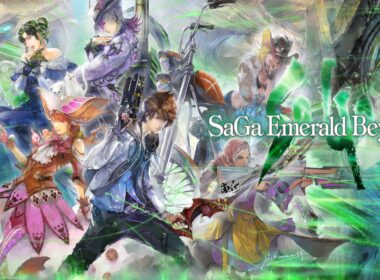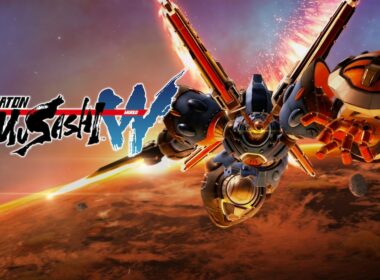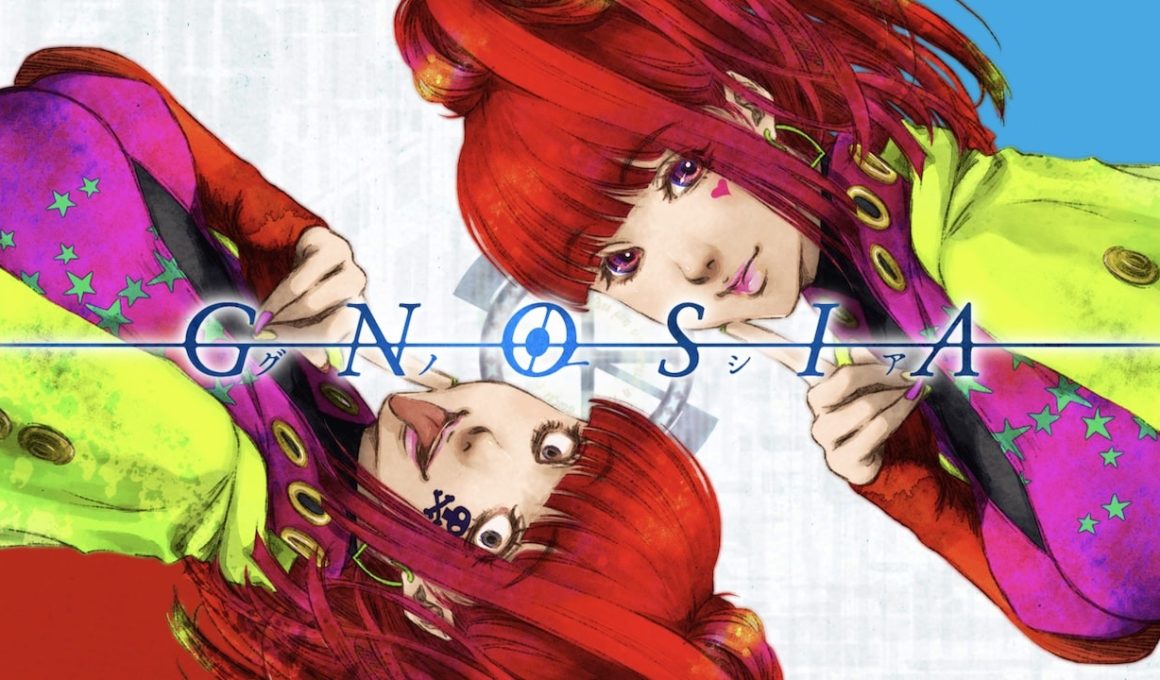Gnosia is a rather difficult game to explain to someone who hasn’t played it, let alone review. Most reviews that have been published as I write this have mentioned that this game is essentially “Anime Among Us”, but that’s frankly far from the truth. While it released after Among Us, it’s important to mention that it came out before it exploded in popularity. It more closely resembles imposter games like Werewolf and Mafia. Gnosia combines the visual novel and RPG genres to “gamify” the concept of Werewolf in a surprisingly fresh way. There are imperfections, but those who give it a shot will likely find themselves captivated by the charm of Gnosia’s gameplay loop and world.
After creating your character and picking out your base stats, you wake up on a ship drifting in space with no memory. You soon find out that Gnos (in simplistic terms, they’re this story’s version of the Werewolves) have found their way onboard and infected one of the crew members, making them a Gnosia. However, there’s more going on in this premise. You and another crew member, Setsu, have found yourselves stuck in a time loop. With each loop, both the amount and the identities of the Gnosia change. The surface-level goal of each loop is to win, regardless of the “role” you’re assigned, but there’s a bit more to it then that when you start to really get into it.
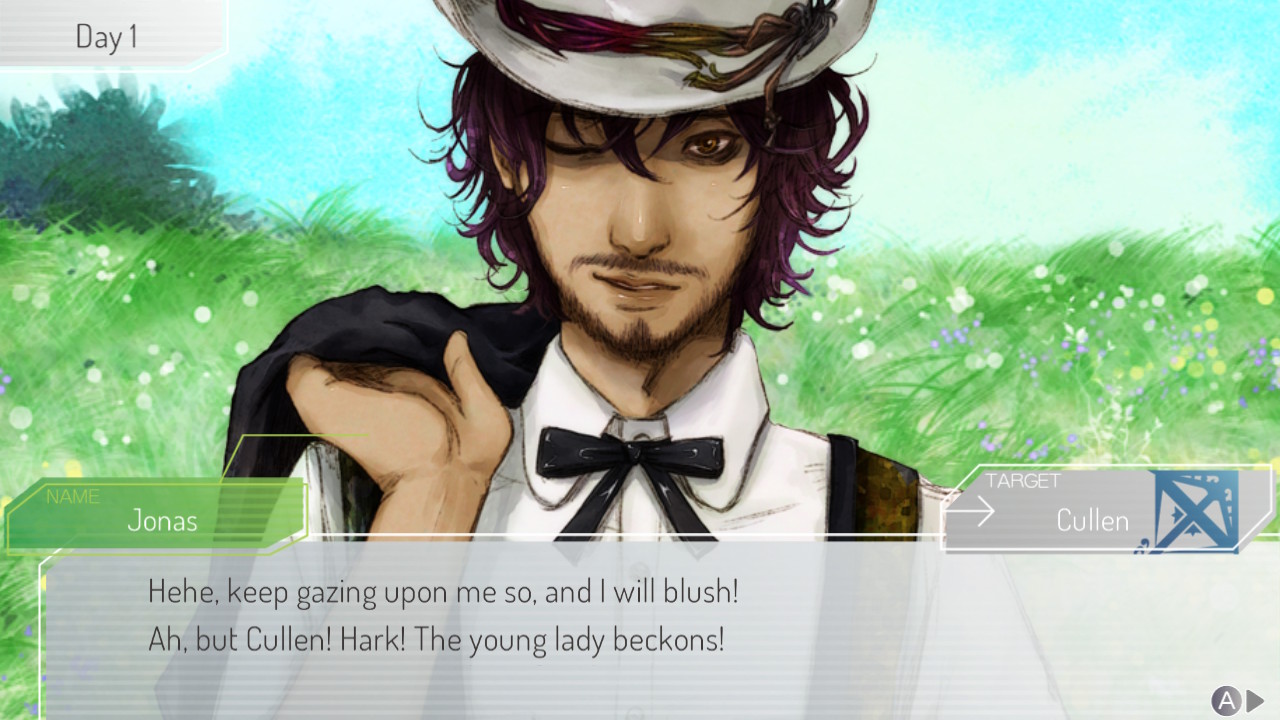
The gameplay doesn’t initially leave a great first impression. It doesn’t necessarily leave a bad one, but Gnosia comes across as a very barebones game at first. The first 20 loops of the game exist as a tutorial, playing out in a roughly linear fashion in order to teach you how the rules and world work. Every day there is a discussion that takes place, with every crew member trying to decide who is a Gnosia. At the end of five rounds of discussion, everyone votes on who is the most suspicious. Whoever gets the most votes is put into cold sleep. After the discussion ends, you are given free time to explore the ship with a menu of different locations. Here you can talk to any of your crew members or level up your stats in your room. Depending on a large combination of conditions, events will occasionally show up during these segments that let you bond with your crew. These scenes can be anywhere between one or two lines, or fleshed out conversations. These are crucial to progression, but we’ll touch on that later. This will continue until the loop ends, letting you start a new one right after that. Loops are incredibly fast-paced, lasting around 10-20 minutes each time. Gnosia is all about its pick-up-and-play nature, which is why the game has only ever been released for the PlayStation Vita (in Japan only) and Nintendo Switch.
It would be impossible to go any further without just explaining to you how the game works. Each loop has a total of up to 15 people, and can have a maximum of four Gnosia. Like with every imposter game though, there are numerous roles thrown into the mix to make things complicated. The Gnosia’s goal is to take out crew members one by one until their numbers are equal, which allows them to take over the ship. They do this by killing one crew member every night, and lying in the discussions that take place every day. The most average role is that of just a normal crew member, with no special ability. Engineers can look into one crew member a night, and discover if they’re Gnosia. Doctors can see if the person who was put into cold sleep during the previous day’s discussion actually was a Gnosia or not. The Guard Duty role is an interesting one, which designates a pair of crew members to have existed on the ship before everyone else. These two people are proven to be humans, confirming their loyalty but also making them a target if they are revealed too early. AC Followers support the Gnosia without knowing who they are, so they’ll lie during discussions to cause chaos and help them win. The last role is one that I believe is unique to this game, and that’s the Bug. The Bug’s mission is to make it to the end without being discovered by engineers (which can squash them instantly), because when they do so they destroy the universe and end the game no matter which side wins. Humans are incapable of lying, but AC Followers, Bugs, and Gnosia can lie and pretend to be any of the Human roles.
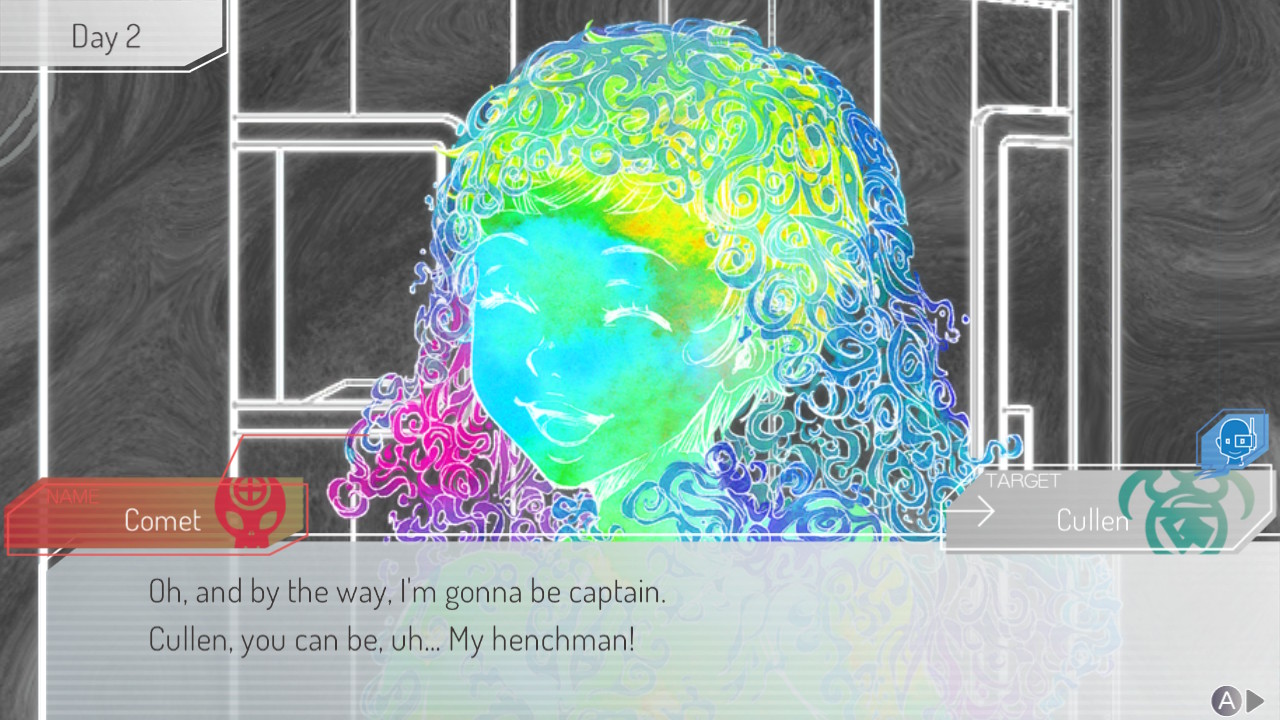
With all these elements in play, discussions needed to be just as complex. I personally feel the game delivered in this aspect. Gnosia introduces you to a world where you feel powerless, making it easy for you to fall prey to being manipulated by those around you. With each loop however, you make slow steps to regaining control of your situation. In the first few loops, it’s a good idea to keep your head down. In each discussion you are given a list of commands, starting with just doubt or cover. If you try to lead the conversation by just doing this you’ll seem suspicious. The game does a rather excellent job teaching you not explicitly by words, but by experience. Even before a character spoke up to tell me I should keep my head down if I wanted to survive, I pieced that together myself by learning from repeat failures. As with any game dealing with a time loop, it was important for the developer to convey a sense of gradual progression, and with this game they did so with the actual gameplay. Regardless of if you win or lose, you always gain EXP. Your stats are crucial to your success in this game. There’s Charisma, Intuition, Logic, Charm, Performance, and Stealth. I won’t explain how they work in detail, since the game does a rather great job laying them out to players each time they go to level up. There will be a picture below showing this off, but the main one worth highlighting is Intuition. The rest of the skills have subtle influences on how conversations play out, but that one allows you to discover when people are lying. The higher you have that stat, the higher the chance that you can see when a character’s statement isn’t true.
Your skills will influence not just how people will react to you during discussions, but like a classic RPG also allow you to use abilities. Words are your weapon in Gnosia, and there are a lot of ways you can use them to your advantage. This is one of the most impressive aspects of the game, and I was blown away with how well thought out this mechanic was. Every possible response to a situation seems meticulously thought out, and you’ll discover new abilities about up until the end of the game. You can collaborate with others, make people pity you when you’re accused or even snap back on your accuser to try and make others turn on them, rally agreement when someone else is trying to doubt or cover for someone, make everyone say they’re human (to look for people lying), and much more. I’ll be honest. Late game made me feel like a bit of a sociopath. When you understand this game’s logic, you practically stop reading the dialogue during discussions. You can start to see the signs and tells, and you’re able to steer things in the direction you want almost every time. It’s an incredibly satisfying game to master, rewarding players who put in the time.
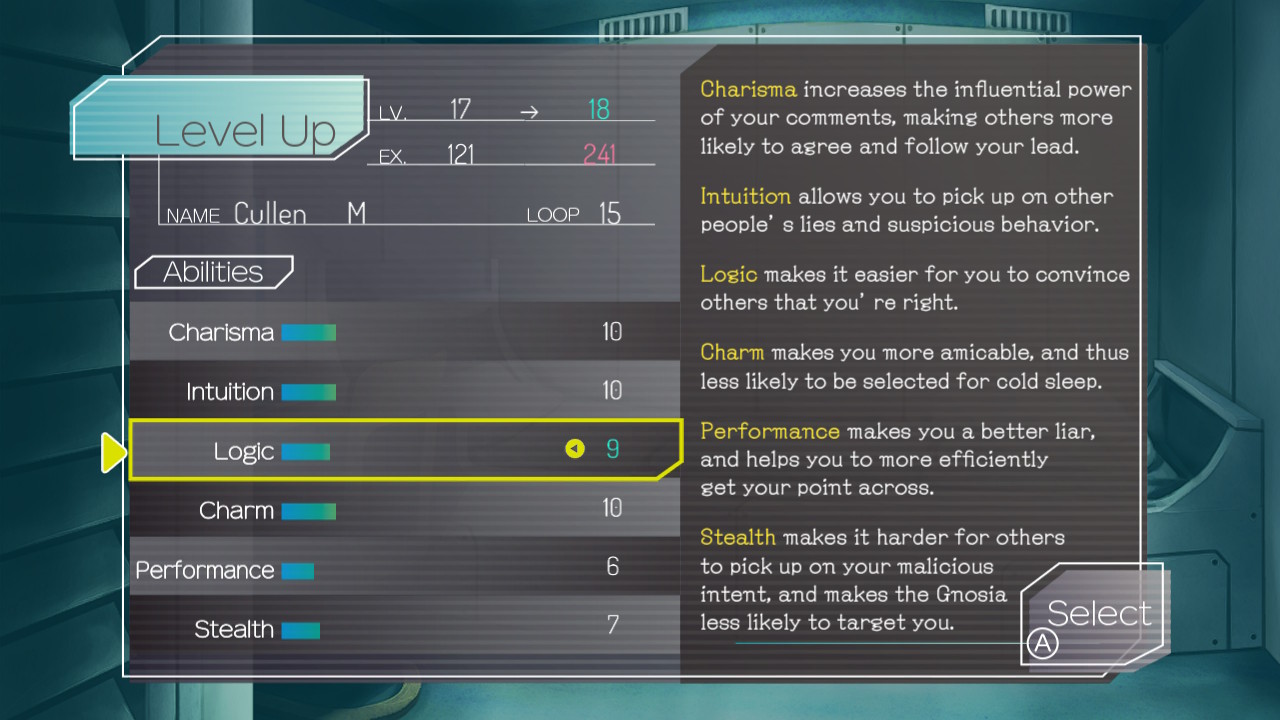
One of the most defining attributes of Gnosia is just how customizable you can make your experience. After a few loops, the game completely opens up and lets you tweak each one. You can choose how many people, Gnosia, and which roles you want to exist that round. More importantly, you can choose the role you wish to play. You can experience the game from every perspective, requiring you to think differently in order to survive. Most Visual Novels with a time loop premise only offer the illusion of randomness with each loop, using the idea as a framework to tell a story. Gnosia takes this a step forward, with a progression system that was a risk that will rub many people the wrong way, but one I feel paid off. The actual end goal is to go through these loops and uncover everything about each crew member, which are filled out in a datasheet as you play by witnessing the events I mentioned earlier. With 14 unique and interesting characters to uncover, that sounds pretty impossible with each loop being random. Thankfully the game took that into consideration, and it isn’t long in your playthrough before you have the ability to search for a combination of factors to get you specific events. For better or worse, however, Gnosia is committed to its premise. You do not know what is required to unlock each event once you search for it, which can be rather frustrating at times (especially in the end game, when you have very few left to unlock). At the same time, few mystery stories make you feel this involved. It creates a level of… dare I use this cliche… immersion with the environment that few games like it have managed to achieve.
Unlocking events is never as simple as simply winning the round with a certain character alive. Sometimes you need to lose. Sometimes you need to help the Gnosia win even as a crew member. Sometimes you need two people to both claim to be an engineer. Sometimes you DO need to keep someone alive until the end, despite the fact that they’re generally incredibly unlikeable. The amount of creativity put into fleshing this out was noticeable immediately, and it was engaging to stumble upon interesting combinations. While it seems incredibly obtuse, I found it to be a positive in the long run. There are frustrations here of course, the reliance on RNG will ensure a certain level of that no matter what, but I think the game hits more than it misses. On paper it definitely seems like the shortness of each loop and the complete randomization of them are a strong negative. When I realized that’s what the game was, I felt disappointed myself. However, the more you play it the more you warm up to it.
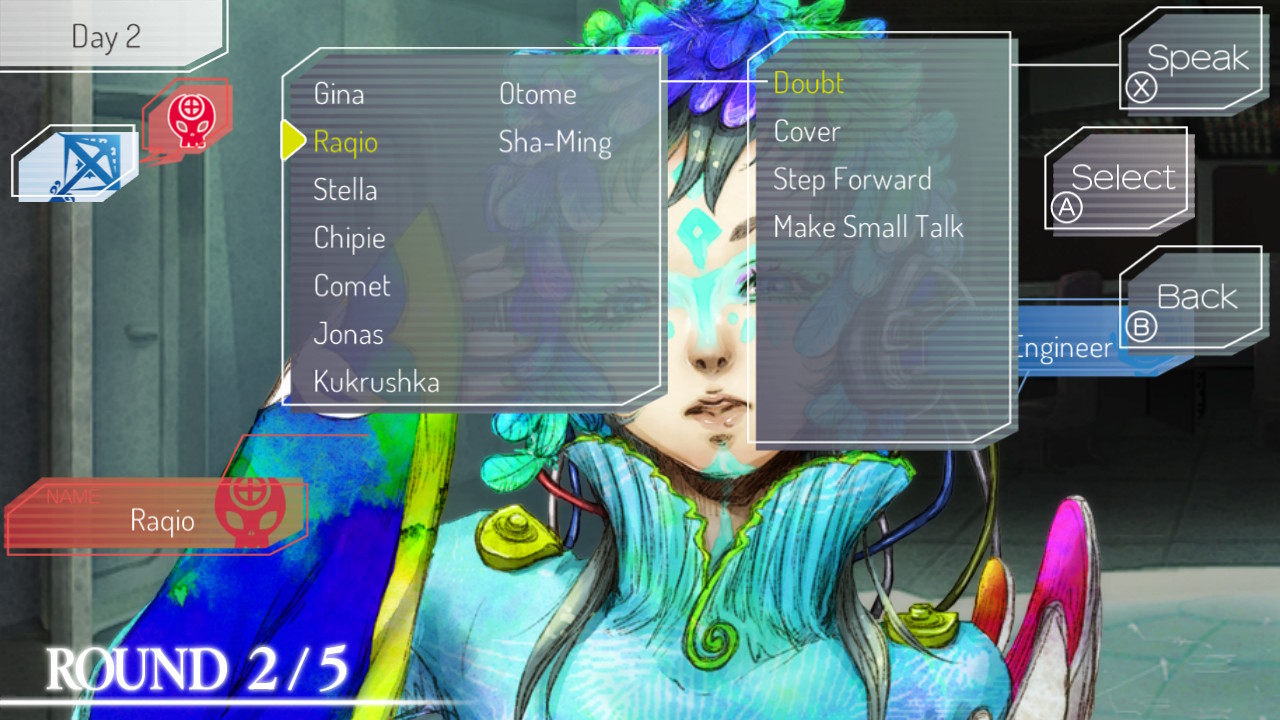
Dialogue can be both enjoyable, or confusing. The translation definitely needed another editing pass, because there were a handful of scenes that made me scratch my head. Granted, I’m not saying the translation is entirely bad. This is an indie game and I’m sure the localization team did the best with what they were given, but I still wish more attention could have been put into the dialogue to make it flow better. Discussions feature numerous re-used lines as is, so stiff writing can hamper an experience like this. Thankfully, the English script delivers during the story moments that matter.
Outside of the few translators on the project, Gnosia was developed primarily by four people. This is both an incredible accomplishment and an explanation to some of its more unpolished aspects. The AI for the characters can often be rather inconsistent, with people randomly deciding to switch loyalty or defending someone they just doubted. You get used to this quickly, and it doesn’t tend to hurt the flow of discussions too much, but it was annoying whenever it popped up. Focusing on nitpicks like this however does a grave disservice to the team’s numerous achievements when it comes to this game.
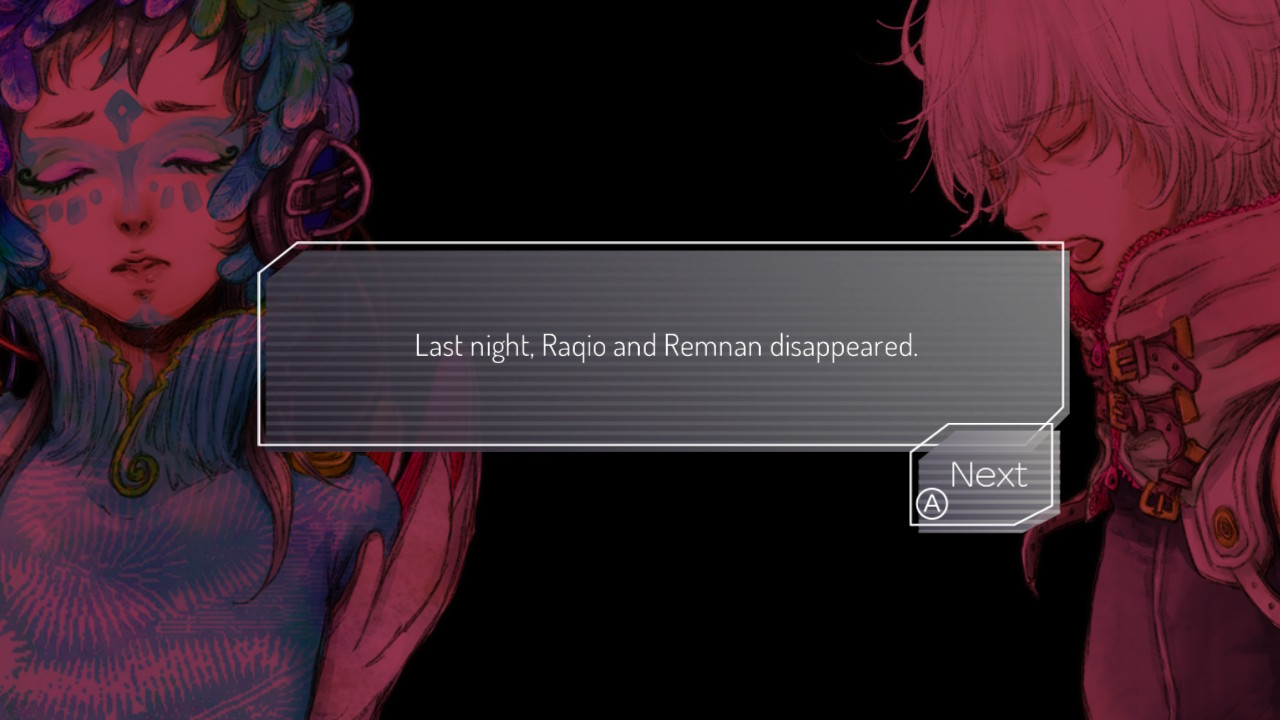
The story is quite interesting. A solid plot overall that is heightened by truly fascinating and charming characters. The writers have given us a vertical slice of a universe you can really tell was given dense lore that the players never even get to see. There’s a minimalistic nature to the writing that’s truly commendable, telling the player just enough to get invested but not too much to deflate the mystery. There’s a sense of realism to Gnosia’s strange world, and that’s because of how rich the culture is on display. Each character comes from an interesting background, and despite their personal flaws were rather endearing. I also loved how the game approaches non-binary and queer characters by just making them an accepted part of a very diverse galaxy. Granted, I think the translation makes some of this unclear and muddied, but the intent was certainly there. Playism seems to have realized that the original English script has done this, and as of writing this has stated that the game will be patched “ASAP” to reflect the original intent. It was nice that this cast of people from a large variety of different planets don’t all just feel like reskinned humans, which is a trap many writers penning similar stories find themselves falling into.
The writing wasn’t the only thing that made me love the characters, and this is thanks to the art and music being jaw-droppingly stunning. Artist Kotori and Composer/Sound Designer Q flavor were unknown to me before I played this game, but their work deserves all the praise possible to it. The illustrations are beautiful, overflowing with color and expression that bring these characters to life. The music is strange, scary, unknown, and beautiful all at once. The presentation is absolutely incredible, and if this was the team working on a budget then I’d love to see what they can do after this.
Gnosia is not like X, Y or Z game you might be thinking of. Even calling it a “great dialogue-themed RPG” doesn’t do it justice. Gnosia is Gnosia. There’s really nothing like it, which is pretty damn impressive for a game that is trying to recreate Werewolf when so many others have tried to do that. You could compare it to numerous other video games like it, but Gnosia does so many subtle things better than its contemporaries and enough different, that making comparisons just isn’t fair. The fact that the game takes as long or as short as you make it will make every playthrough feel personalized. It has a staying power that few games like it are able to achieve, which is apparent with just how it practically begs for public discussion. It’s a blast to discuss your progress with your friends, compare how many loops it’s taken you to complete the game, and give each other advice. The flaws are certainly apparent, but Gnosia isn’t necessarily ashamed of them. Gnosia has a specific kind of confidence to it you don’t often see from this medium.
Version Tested: Nintendo Switch
Review copy provided by Playism



